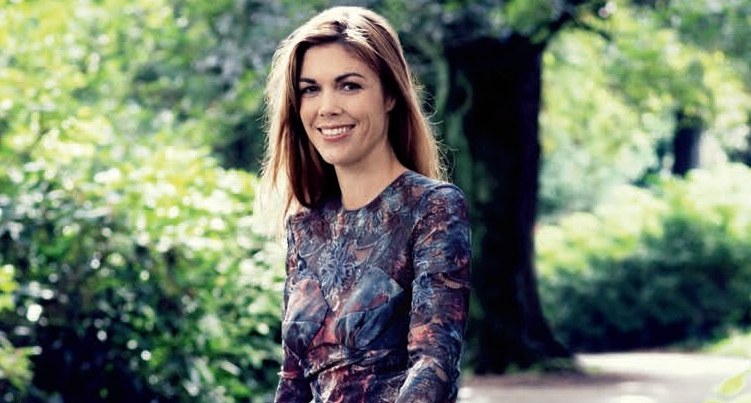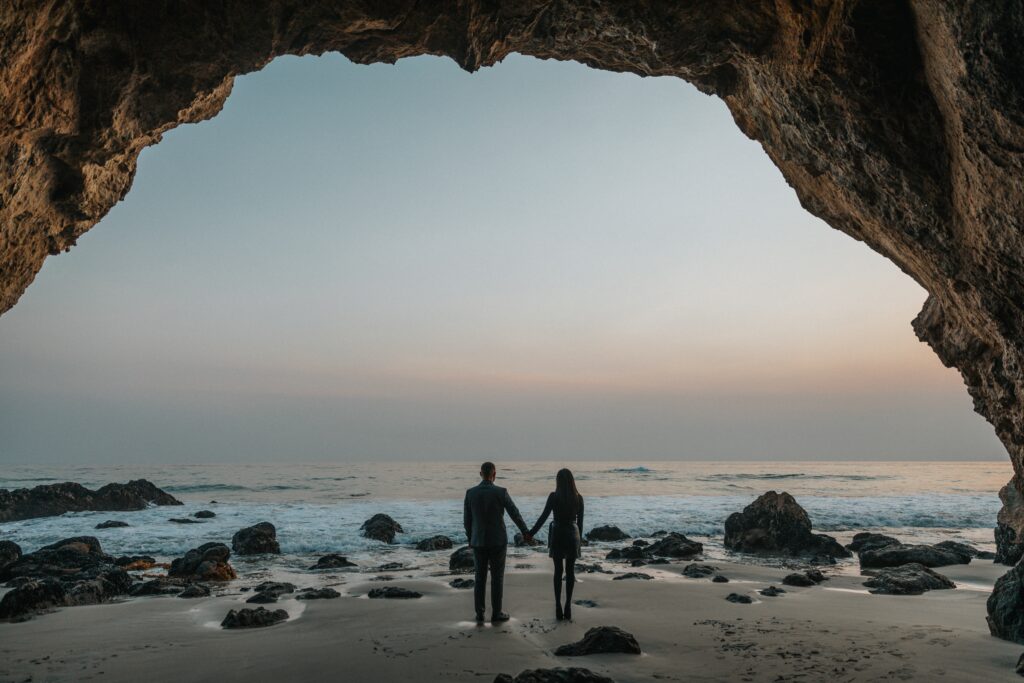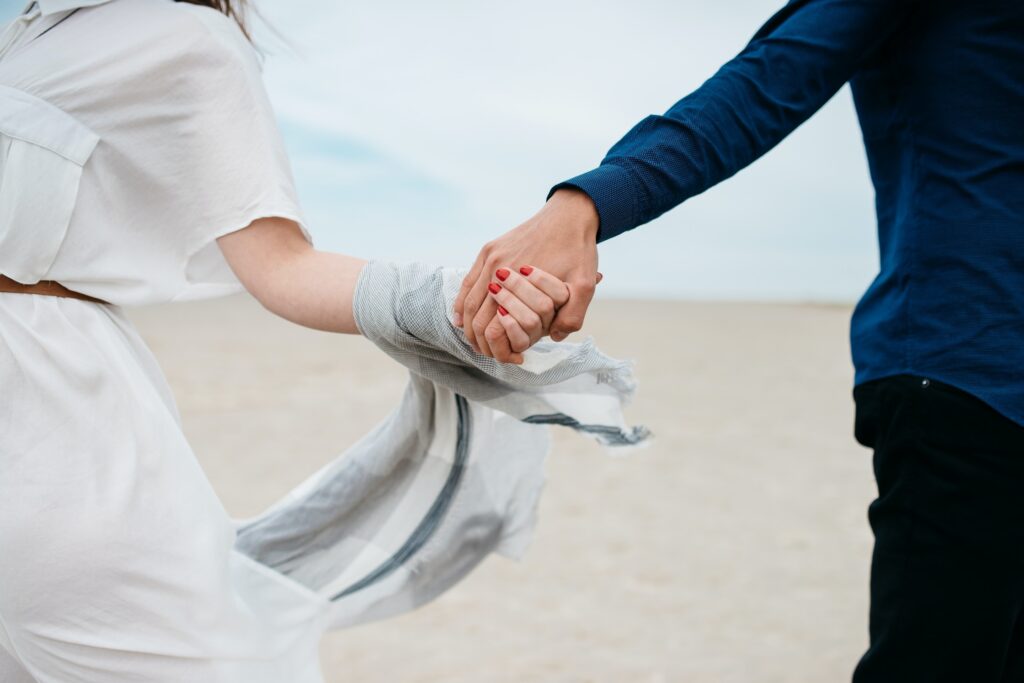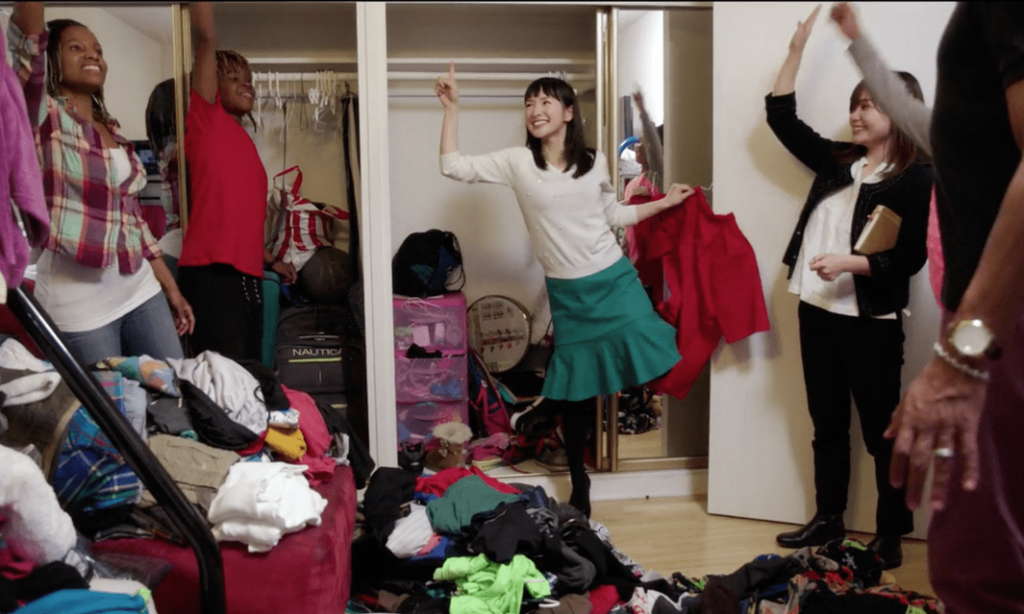
“Unless you have an effective defence, you’re not going to have a fair trial. And unless you have a fair trial, you won’t have justice.”
It’s early morning in the Hague, and Melinda Taylor is on Skype while her three-year-old daughter plays nearby.The Brisbane-born international criminal justice lawyer is discussing the necessity of defending accused war criminals, something she is called upon to do in her role at the International Criminal Court (ICC).
Indeed, she was doing just that in June 2012 when she and three of her colleagues were arrested in Libya.The ICC-appointed group was there to meet with Taylor’s client Saif al-Islam Gaddafi, son of former dictator Muammar Gaddafi, who had been charged with crimes against humanity. After a shortened meeting with Gaddafi, all four were arrested by the National Transitional Council of Libya (NTC), accused of spying.They were detained for 26 nail-biting days. When pictures of the hijab-clad and clearly relieved Taylor leaving Tripoli unharmed finally hit the news, there was a collective sigh of relief across Australia.
Today, only a few months later and miles from Libya, she says the whole experience seems surreal. “It’s hard to deal with actually, because I have my normal day-today, somewhat boring life in the Hague where I go to work, I sit behind my computer, we draft motions, but it’s fairly mundane,” she says. “And then you go: ‘Oh yes, I was arrested and spent 26 days in Zintan.’”
“Why do normal people
who in any other normal circumstances would have been waiters,
who would never have committed any crimes,
suddenly take up arms and start shooting people?
Taylor is an eloquent woman and as she retells the story, she adds a healthy dose of humour. She’s somebody you would want in your corner when the going gets tough, yet she shrugs off any proclamations of courage, instead pointing to the countless United Nations workers and volunteers who go into risky diplomatic situations each day. Still, hers is an extraordinary story.
Funnily enough, Taylor never wanted to be a lawyer. She studied law and arts, with political science as a side. “I always wanted to do something with political science,” she says, “because, to be honest, none of my law subjects really grabbed me.”
Human rights did interest her. When she discovered the International Criminal Tribunal for the former Yugoslavia (ICTY) had an internship program, she applied, little expecting to get a place. In fact, she was backpacking through Europe when her father contacted her to tell her she was in. “So basically I turned up with my backpack at the ICTY courts,”she says with a laugh.“I think I was knocking on the door of the Australian embassy, going: ‘Can anyone show me the ICTY?’And 13 years later, I never really left.”
There were a few stints away: an unsuccessful six-month sojourn back in Australia (“I found it quite difficult doing normal law”) as well as working with rape victims in Kosovo and volunteering with the United Nations protecting cultural heritage in Yugoslavia. Yet she and her British husband, fellow human rights lawyer Geoffrey Roberts, always returned to the Hague and its international peace headquarters.
It’s the human dimension as much as the political dimension of her work that appeals. “You’re basically dissecting culture, finding out why people do what they do, and how people react differently in extreme circumstances.” It’s about examining how events could be avoided. “Often history repeats itself, but with war crimes tribunals you get the opportunity to dissect why the conflict happened. Why did it escalate? Was there a point where it could have been stopped? And why do normal people who in any other normal circumstances would have been waiters, who would never have committed any crimes, suddenly take up arms and start shooting people?”
While she believes opportunistic groups often exploit situations for economic gain or personal vengeance, it hasn’t soured her own opinion of humanity. “You also see that some people react in a very courageous way in these circumstances.While one person might decide to take up arms and kill people, another person might decide not to and save people and do these incredibly heroic acts.”
She has seen the worst of humanity but has no hesitation, when asked why suspected war criminals should be defended, in arguing that without a fair and open trial there can be no justice.“At the end of the day, you know that when you get a verdict it is a legitimate verdict that will stand the test of time, rather than being a show trial.” A wrongful or unfair conviction could create grounds for a future conflict. And, as she points out, there is often an incorrect presumption of guilt, with numerous acquittals when brought before the international courts. “These people have just as much right to defend themselves as everyone else.”
So it was with the Saif al-Islam Gaddafi case. Although he didn’t hold an official position,Gaddafi was a member of his father’s inner circle and often seen as the public face of the regime.The Libyan civil war began in February 2011 and in June 2011 the International Criminal Court issued an arrest warrant for him for crimes against humanity.The capital Tripoli fell in August and two months later his father and brother were captured and killed by rebel forces. Gaddafi himself fled to the loyalist town of Bani Walid, but he was captured in November 2011 and detained in Zintan, a small town in the north west of Libya.
“These people have just
as much right
to defend themselves
as everyone else.”
Since his arrest, there has been an ongoing debate over whether he should be tried in the Hague under international law or, as the National Transitional Council of Libya would like, in Libya. Taylor’s trip to Libya in June 2012 was to be the ICC-appointed defence team’s second meeting with Gaddafi.
There were initial concerns about the visit. When they took office the National Transitional Council of Libya passed a law that criminalised any political speech that could be seen as “glorification” of the former leader, his sons and their regime. Anyone found guilty could be imprisoned. Aware of the law, the ICC defence team filed a motion before the courts voicing its concern, yet the NTC reassured members that the law would not apply to them, and that they would meet with their client in a privileged setting.Taylor suspected their meeting would be delayed but she thought they would be safe.
Upon arrival in Libya, the defence team of Taylor, ICC senior adviser Alexander Khodakov, head of counsel support Esteban Peralta Losilla and translator Helen Assaf, were taken by Libyan authorities to a house in Zintan to meet with Gaddafi.The understanding was that Taylor and her client would meet in private yet, ostensibly for security reasons, a guard sat in on the meeting. It soon became clear he was more than a guard, as he confiscated document after document that Taylor passed to Gaddafi, including the official detention order. “[The guard] started shouting at me that we’re violating national security,” she remembers.
Frustrated and concerned, Taylor cut the meeting short, only to discover the entire episode had been filmed. She also discovered guards had rifled through her bags and gone through her mobile phone. Although the lawyer reminded the Libyans she was protected by the privileged immunity of the ICC, she was ignored.When she pointed out that the international courts would be informed about what they were doing, things became even more concerning.“That’s when I think they realised that it wasn’t in their interests to release us right away. So then they started trying to interrogate us.”
Trapped at the Zintan house without their own transport, the group was accused of various things, including attempting to extract money from Gaddafi and sneaking a nurse into the meeting, under the guise of an interpreter. “I have to say, none of the accusations were particularly logical,” says Taylor.
The questioning dragged on into the night. Eventually they were left to sleep on the floor of the detention house. Outside, guards toting AK-47 rifles patrolled the perimeter. “Didn’t really sleep that night,” she recalls. The following day came and went without the group’s release. When Taylor tried to contact the ICC, her phone was confiscated, along with her notes, her personal documents, even a birthday card her daughter did for her husband. “My feeling was that they were looking for anything that would help them.They wanted to know as much as possible as to what the defence was doing.”
“It’s strange looking back at it,
because our emotions were just
one big roller-coaster.
After four days of house arrest, they were transferred to a prison. The severity of the situation became clear to Taylor.“When we were in the house, it had a temporary feel to it. It was just a matter of: ‘Okay, this will be sorted out soon. We can’t stay here,’” she says. “But when they took us to the prison, I [realised:] ‘Okay, they’re in it for the long haul.’”They also realised they were being detained by the government, rather than a rogue group. “At one point it was confirmed to us that [Mustafa Abdul] Jalil, chairperson of the NTC, has confirmed our detention.”
The modern prison was a former military base in the middle of the desert, surrounded by tanks. Taylor laughs when I ask if, as was widely reported, she enjoyed the food. “Well, compared to everything else! I wasn’t going to complain about the food. I quite like couscous and spicy food – it could’ve been worse.”
But, although they were respectfully treated, Taylor confesses it was terrifying. “Incredibly,” she says, taking a deep breath. “It’s strange looking back at it, because our emotions were just one big roller-coaster.We were frustrated, incredibly angry, incredibly bored. I was vacillating between laughing and crying: laughing because it was just so ridiculous and then crying because [we wondered:] ‘Are we ever going to get out of here?’”
The group was initially denied communication with the outside world. When an ICC delegation, including Australian ambassador designate to Libya David Ritchie, was finally allowed to see them, they were not allowed to talk directly to the group. “Every time they’d get too close to us, they’d go: ‘No, no, you can’t talk to them directly.’”The meeting was just a meeting about a meeting, and Taylor’s hopes for release were dashed yet again.
Beyond the walls of the prison, international diplomatic wheels at the highest levels were spinning trying to secure their release. Foreign Minister Bob Carr and Prime Minister Julia Gillard were involved, with Gillard calling on the Libyan government to expedite the end of the group’s detention. When Taylor was told about the efforts, she was reassured. “I think I started crying then, because I thought, you just don’t expect something like that to have that level of attention.”
Still they remained imprisoned.The four passed the time talking and walking the corridors outside the two bedrooms the group shared. Taylor remembers rushing to the taped-over windows each time a car would pass the prison. And they watched a lot of bad television. “I watched The Shawshank Redemption,” she says with a laugh, “[but] we realised that even if we did escape, we’d still be in the desert.”
Their natural routines were off-kilter, as they would sleep through the heat of the day and stay up late into the night talking. “And when you try to sleep, of course, your head is going through everything, all the things that are going to happen, all the things that could happen, and worrying about your family.”
“I watched The Shawshank Redemption,
[but] we realised that
even if we did escape, we’d still be in the desert.”
She pauses while she thinks about how she maintained her strength of mind in such extraordinary circumstances. “It helped that there were four of us. We could talk to each other and they were very supportive and [we] just tried to be optimistic.”Eventually she was allowed a five-minute conversation with her husband. A heavy sigh escapes her as she remembers thinking about her daughter. “It was almost too difficult when you think about your family.That makes it even harder.”
After more than three weeks in captivity, they found out they were to be released from an announcement on Lebanese television. “Thank goodness we had a Lebanese interpreter,” Taylor quips, before sobering. “We were still hesitant because I thought things could still fall through. I thought: ‘I’ll believe it when I’m in the Hague.’” The group was freed on July 2, flying out of Libya to Rome, with Taylor returning to her relieved family in the Hague.
Taylor was back to work at the ICC the following day, determined to get her client out of Libya as soon as possible. All light-heartedness vanishes as she explains that her detention demonstrated the unlikelihood of a fair trial for Gaddafi in Libya. “For us, okay, I was released, but he’s still there,” she says. “He’s been there now for over 10 months and he hasn’t been able to speak to his family at all for over 10 months.He’s only been able to speak to lawyers on two occasions and obviously on the second occasion it was illegally monitored and his lawyer was arrested. I can’t imagine what he’s thinking, what he’s going through. If I found it difficult in 26 days, how would he find it? I had the Australian government, I had the ICC, I had a lot of support for me – whereas he must feel completely abandoned.”
She won’t predict where the trial will eventually take place. If it happens in the Hague, as she hopes, Gaddafi will choose his own legal counsel and she will continue to support his defence.Through the shadowy Skype screen, she looks disheartened when I ask what would happen if he were tried in Tripoli. “Honestly, I don’t see how it is possible for him to have a fair trial. I don’t see how it’s possible for the court to call defence witnesses. I think there’s no security there. I don’t see how anyone can publicly volunteer to be his witness without there being some kind of repercussions. I don’t think they have the freedom to do so. I think it will be difficult for him to present certain arguments because those arguments are always going to be unpopular with the government. So I think it’s inevitable that he will be convicted.”
“Honestly, I don’t see how
it is possible for him
to have a fair trial.”
Her tone becomes more clipped. “And they have said that on the record that if he’s convicted ‘we’re going to hang him.’”That’s why she had to return to work as quickly as possible. “It’s incredibly difficult, knowing you’ve got someone’s life in your hands.”
Although she doesn’t falter through our chat, she says the first few weeks back were difficult. Her body clock askew and her mind racing, she suffered from insomnia and struggled to re-establish her normal routines. Her family, friends and colleagues were thrilled to have her back safely.“That’s the silver lining, to see what wonderful friends and family you have.”
She was also deeply touched when she discovered the support and concern the Australian people had shown throughout the ordeal. “If there was a gold medal for supporting your people, Australia would win it because it was just overwhelmingly positive and supportive.” At the same time, it was strange to be thrust into the spotlight suddenly. “On the one hand, incredibly heartening and touching and, on the other, just really surreal.”
Another surreal aspect is that the Libyan government still has a court hearing pending against Taylor. It has been postponed repeatedly, but she could be convicted in absentia. Initially she was concerned – “of course, no-one wants an absentia conviction for 25 years” – but now she takes it with a grain of salt. “If it happens, it happens.There is nothing I can do about it.”
“If I was allowed to go back to Libya, I would go,
if I could see my client and
[they would] guarantee they wouldn’t arrest me.
Next time I would take more books.”
Unfortunately, one of the countries that has an extradition treaty with Libya is the United Kingdom, so Taylor won’t be visiting her English in-laws any time soon.They approached the British government for assurance that she wouldn’t be arrested, but were refused. “Good to know,” says Taylor with a dose of gallows humour.
She refused to let the experience hamper her ability to do her job, saying some degree of risk is part of the job.“But we do it because we want to help people.” For places deemed a security risk, she relies on Skype and other telecommunication.Surprisingly,Libya is not entirely off the list. “If I was allowed to go back to Libya, I would go, if I could see my client and [they would] guarantee they wouldn’t arrest me,” she says with a laugh. “Next time I would take more books.”
The tragic coda to the episode was the firebombing of the American embassy in Benghazi that killed American ambassador to Libya Chris Stevens, who played a role in Taylor’s release. It shows how insecure Libya is, says Taylor, and how lucky she was: “I have my life, I have my health, I have my family.” Above all, the experience has made her realise just how important it is that justice is protected. “I’ve seen how it can be politicised and how vulnerable justice is to political influences. But that to me doesn’t mean that you shouldn’t strive to try and achieve it.”
Published in Vogue Australia January 2013
WHY DON’T YOU READ:
Cate Blanchett on her final season at Sydney Theatre Company
Essie Davis on the making of a truly modern heroine



